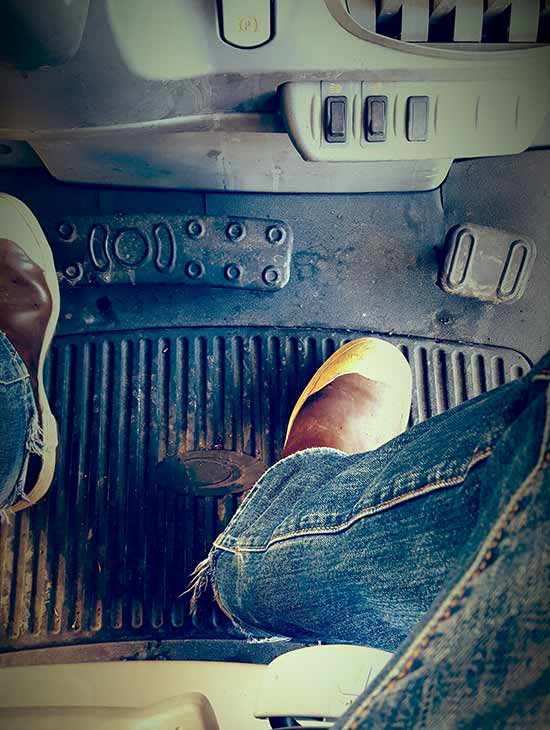Duckhorn Portfolio Wine Blog
Posts written by Neil Bernardi, Vice President of Winemaking and many special guest bloggers. This collection of insights on winemaking, farming, entertaining and more is a great way to learn about the excitement of winery life and tips for enjoying the wines we produce.
Happy Thanksgiving!
November is a special month in the winery, especially after the intensity of harvest. Typically we are finishing off fermentation, pressing off skins, putting wines down to barrel, and carefully monitoring ML conversion. This year was so early many of our wines are already finished with ML conversion! Activity around the winery slows, and there is plenty of time to taste through the last vintage red wines and start the blending process for Sauvignon Blanc (which tastes amazing)! There is also plenty of time to consider how fortunate we all are to live and work in such an beautiful place, and to be thankful for everyone who makes Duckhorn such an incredible place to work. Many thanks to our amazing team, and Happy Thanksgiving to all!
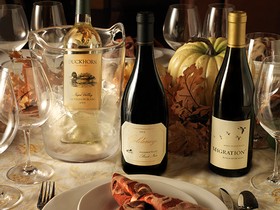
Press Management
One of the challenges of making wine from Red Mountain is perfecting the art of tannin management. The climate and soils conspire to produce Cabs of remarkable power and density, but oftentimes wrangling the tannin takes some thoughtfulness and extra care. One of Brian’s techniques is to spend additional time at the press pan, tasting wines throughout the press cycle. Knowing when to cut the press is key to addressing some of the more challenging tannins.
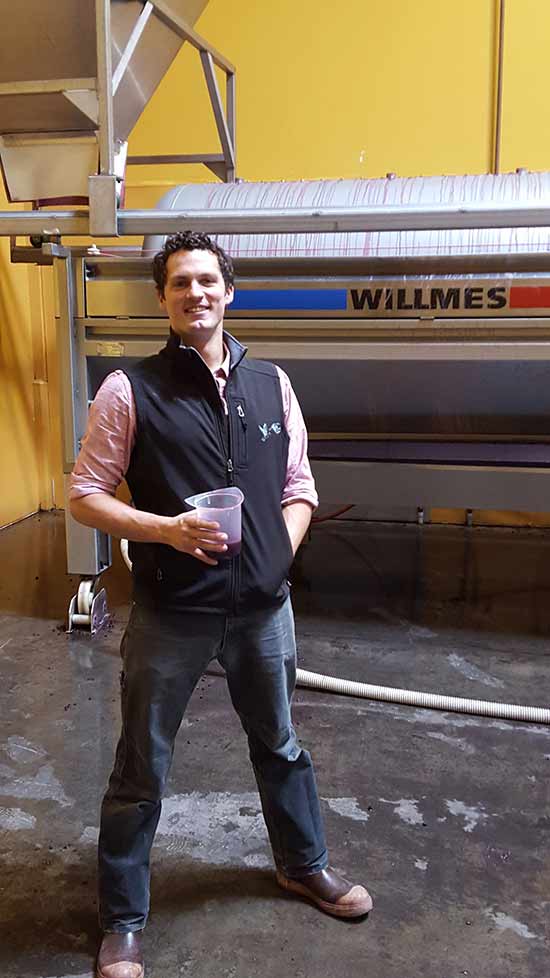
Harvest Complete
That’s it folks, harvest is over! The last fruit is in for all wineries. Much work remains to press everything off and put the vintage to bed, but we have gotten all of our fruit off the vine. Congrats to each of our teams for another impressive year of hard work and great wines. Some interesting harvest facts:
- We started harvest on July 31st and finished on October 16th.
- Earliest vintage in most locations in recent memory.
- September and October were unusually warm, which increased the pace of an already early year.
- There was little difference in ripening between many varietals, with Cab, Merlot, Chardonnay, and Zinfandel ripening around the same time.
- Yields were quite a bit lighter than in past years. Early signs are that our wine quality level is very high
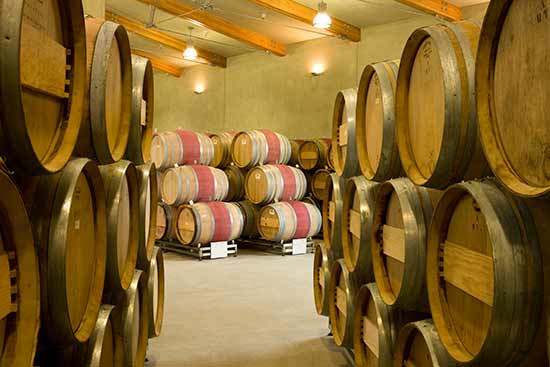
Washington Love
I had the great pleasure of heading up to Washington to see our Canvasback winemaker Brian Rudin last week. We tasted through most of the fantastic wines he has been crafting, in both the 2014 and 2015 vintages. It is remarkable to taste the level of wine quality coming off of Red Mountain, as they have the ability to be both powerful and extremely elegant at the same time, despite a big tannin profile. We are all very excited for the future in Washington, especially with our Longwinds estate vineyard coming into production over the next few years.
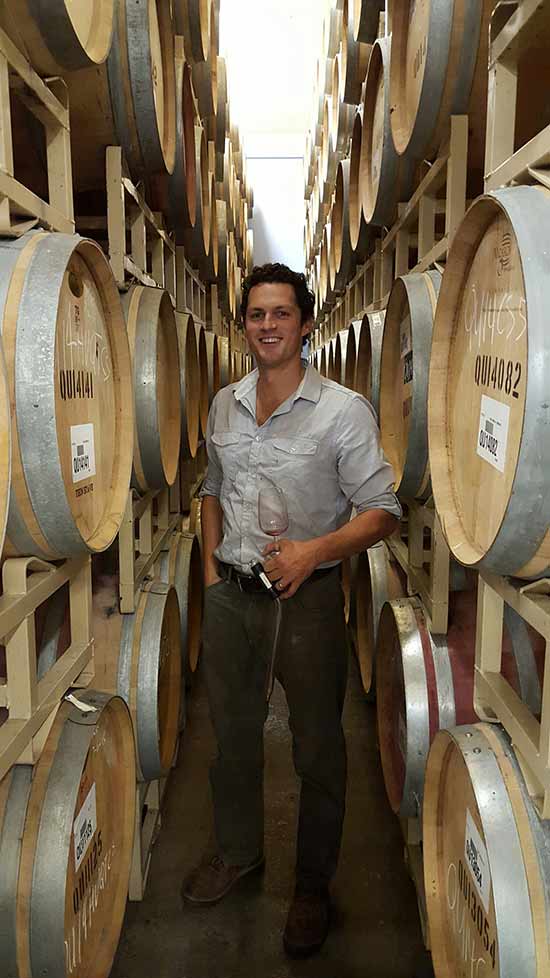
Canvasback Complete!
Brian Rudin, our illustrious Washington-based winemaker for Canvasback, has finished the 2015 harvest! He brought in his last fruit on Saturday. It was another year of excellent weather, even temperatures, and great quality on Red Mountain, the small-but-mighty appellation that is the home of some of the best Cab in Washington. Like the other winemakers, Brian still has many pressings, many rackings, and many decisions to make before the vintage is put to bed. Congrats Brian! It looks like Duckhorn, Paraduxx, and Decoy are all going to finish up this week as well. This relatively warm and rain-free end to harvest has allowed the remaining blocks to continue maturing slowly. Despite the relatively slow finish, this remains one of the earliest vintages on record.
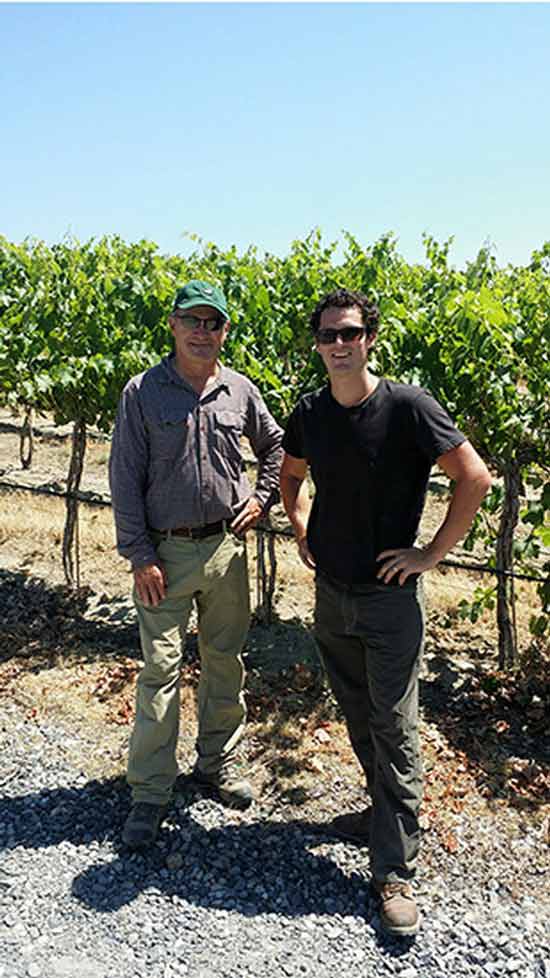
Vineyard Manager Dick Boushey and Winemaker Brian Rudin on Red Mountain
Tools of the Trade - Macro Bins
One of the key tools of harvest is the ubiquitous ½ ton macro bin. This multi-purpose tool is primarily used to transport grapes from vineyard to winery, and hold roughly 1000 lbs of grapes. Other vessels can also be used for this purpose, such as the FYB, a small 40-50 lb. picking lug, the ¼ ton macro bin, and the 2.5 ton valley bin. However, the ½ ton macro is our bin of choice, and is remarkable for its flexibility, durability, and overall usefulness throughout harvest. Given that they are constantly being loaded on and off of trucks, and in and out of vineyards, they definitely take a beating. In addition to transporting grapes, they are often used creatively to assist in other functions around the winery, such as holding pomace when digging out tanks, sanitizing larger winery tools, stacked up as a wind or sun block, and even as a fermenting vessel.
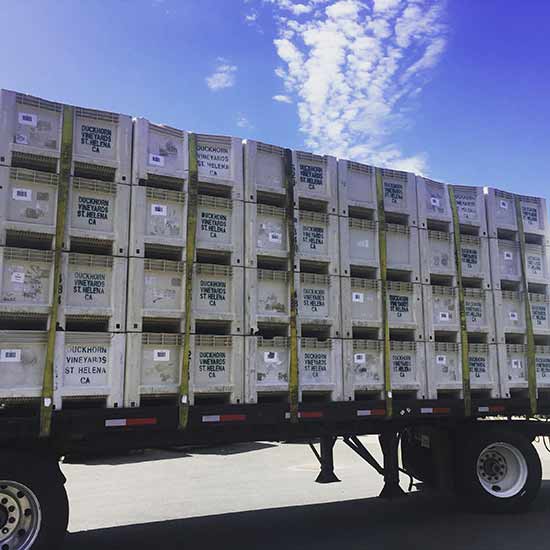
View from the Barn
I had to share this photo, a view from the old barn up at Goldeneye, looking out onto the northern hillside of the Anderson Valley. This view changes constantly throughout the year, from beautiful sun, to mist covered hills, to cold coastal rain, to the rare snow fall. The barn up at Goldeneye was originally used for raising race horses, and is purported to be constructed from a single old growth redwood tree. That would have been one heck of a tree, if the story is true. Before the incredible LEED gold certified Gowan Creek winery was built, we made all of our wines out of this humble space, and put every square inch of it to good use. We would do our blend tastings in this barn during wintertime, bundled up in the cold cellar, with over 125 individual lots of Pinot Noir to sample, judge, and blend. Also pictured is the great Pancho Ibarra, who has been at Goldeneye since the very first day we started in 1996, and who in many ways is the soul of the winery.
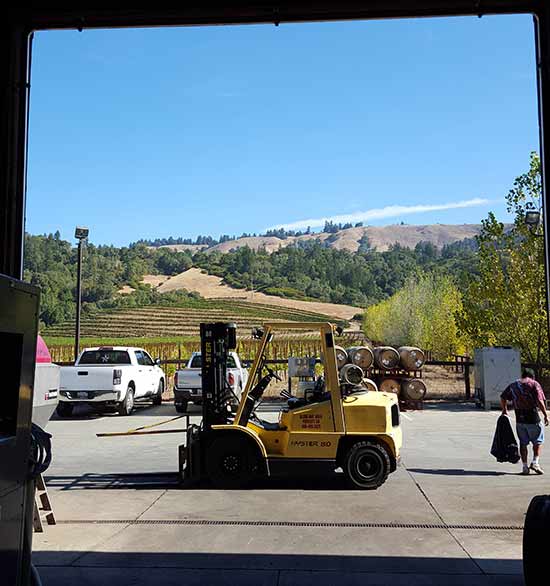
Good Work
I was walking through the winery the other day and was stopped dead in my tracks by the vision pictured above. Is this beautiful or what? It is obvious that this electrician took a significant amount of pride in these pipe bends and joints, the strut, and planning out the flow of her or his work. I spent some time as an electrician’s apprentice a long time ago and can attest to the fact that it is not easy to make this look as perfect as it does. It takes a lot of pride and attention to detail to be excellent at small things that, in all honesty, very few people are going to notice. The same is true of the many small operations that harvest is made of, each contributing in some small way to the final quality in every bottle. Whether it is entering lab data, processing a weigh tag, pulling a slightly pink cluster off of the sorting table, cleaning a tank, pulling a grape sample, or cleaning out a clogged drain, everything we do impacts and defines the quality of our wines at the end of the day. Walking around our wineries one can see a thousand examples of our team being excellent in the smallest of details, from the way a truck is unloaded to the proper coiling of a hose. Thanks to our incredible team for their passion and focus on being great, even in the small things.
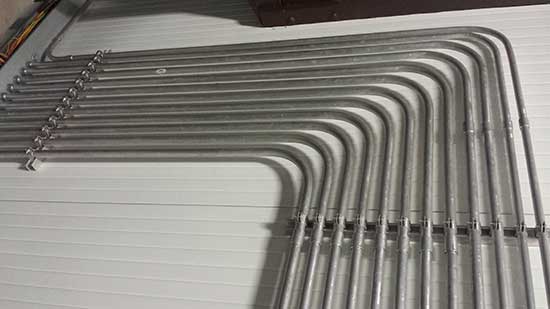
View From a Press
As we move towards completion of harvest, we are seeing more and more of the inside our presses. This photo (taken while complying with OSHA approved Confined Space Entry techniques!) is of the inside of a membrane press at Goldeneye. On the right hand side is the bladder, which inflates and deflates based on the press program and cycle, and which presses the grapes or pomace against the channels on the left hand side. In this case the drain channels have been removed for cleaning. The wine or juice runs out and into the waiting pan below, from which it is pumped to tank. The cylinder also rotates, which acts to break up the cake of skins and seeds, allowing more juice or wine to flow. Having an appropriate press cycle is critical, as the number of rotations, pressure, and timing can all have significant effects on the quality and yield of your pressing.
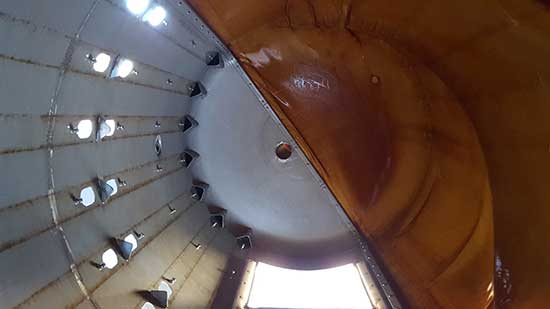
Tool of the Trade - Boots
No review of important winemaking tools would be complete without a discussion of cellar boots. In the best case, they are your best friend – waterproof, hardworking, and up to the challenge of being kicked around all harvest long. In the worst case, they can be your worst enemy – cold, damp, and painful. Most days one spends 10-14 hours in their boots tromping around in various wet environments so it is a smart investment to get boots that can stand up to the pressure.
